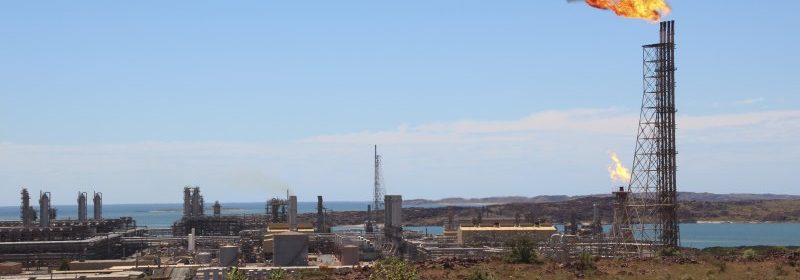‘Really worrying’: $65 trillion climate group to probe Woodside’s CSIRO report

A climate focused investor coalition overseeing $65 trillion in assets has rebuked Australian energy giant Woodside for burying a report that contradicted decarbonisation claims it used to justify expansion projects, revealing it will discuss the research with local funds and Asian institutions.
The Age and Sydney Morning Herald revealed this week that Woodside continued to claim increasing gas production in Australia would reduce global emissions by displacing coal in Asia even though a scientific report it commissioned undermined this claim and reached a more nuanced conclusion.
Woodside gained environmental approval for one of the country’s largest fossil fuel projects claiming more gas would reduce emissions in Asia.
The Commonwealth Scientific and Industrial Research Organisation (CSIRO) found more gas would only reduce emissions if a high carbon price was universally implemented by 2025 and without this increasing gas would displace renewables, prolong coal and increase overall emissions.
Climate Action 100 is an investor group representing $65 trillion across 33 markets that pushes the world’s largest emitters to take greater action on climate change. Australian head Laura Hillis said major gas producers, including Woodside and Santos, had regularly stressed to investors that more gas would reduce emissions in Asia when defending new gas projects.
“Every time investors would ask, where is the evidence for that?” she said. “It’s just very interesting what the report showed.”
Ms Hillis has now circulated the report, which she described as “fascinating” and “concerning”, with Asian institutional investors and will table it during a meeting of 40 Australian investors next month. She said the report raises two key concerns for investors ahead of Woodside’s annual general meeting scheduled for May.
“One is – is this narrative you’re actually making a positive contribution through producing gas credible? This obviously casts doubt on that. The second part – is there going to be any demand for your product?
“And it also raises concerns that if you have an overzealous pushing of gas into those markets, it could displace more renewable sources of electricity, which is really worrying.”
Asian investors in Climate Action 100 include GIC and AIA while Australian signatories include AustralianSuper, AMP, BT and Colonial First State.
Woodside had promoted the Asian emissions reduction claim in its 2020 Scarborough environmental approval process. Ms Hillis said the CSIRO report will now make it harder for gas producers to gain approval using this claim. “More scrutiny will go on new projects, not just because of money, but social licence approvals, all those issues.”
Fossil fuel producers have come under increased scrutiny after the International Energy Agency last year released a report finding no new projects can be approved if economies are to reach net zero emissions targets to prevent catastrophic climate change.
A Woodside spokeswoman said the CSIRO report was outdated and did not contradict “our advocacy”, adding the research had been made public in mid-February, after a months-long freedom of information request by this masthead.
“In any event, Woodside’s strategy and position is now clearly set out, based on the most recent IEA modelling, in our Climate Report 2021, which also takes account of the actual policies now being adopted by our target markets to reflect their own, more recent, Paris-aligned goals,” she said.
However, Ms Hillis said increasingly ambitious decarbonisation commitments in Asia combined with soaring energy prices had further weakened the case for more gas in the region since the CSIRO report was completed.
“If anything, it seems to me the things that have happened since 2019 have actually enhanced the story against gas. Japan set the target in 2050 to cut LNG exports. They’re our second biggest customer.”
Additional documents obtained by this masthead under FOI laws show major oil and gas companies, Santos, Origin and Woodside, have paid more than $3 million to the CSIRO for dozens of research projects since 2019. Ms Hillis said the industry’s funding of science was positive but added there need to be more transparency around its findings.
“In general, investors really like transparency from companies. Certainly for any claims related to climate, investors are asking for that evidence.”
Climate scientist Lesley Hughes, Pro Vice Chancellor at Macquarie University and author of the Intergovernmental Panel on Climate Change’s fourth and fifth reports, agreed, claiming the CSIRO should be more transparent given it is a government-owned institution.
“They’ll always pull the commercial in a confidence card, that’s very convenient. At least some of their funding comes from the government, comes from taxpayers, so you would think there is an obligation of transparency.”
Most Viewed in Business
From our partners
Source: Read Full Article

